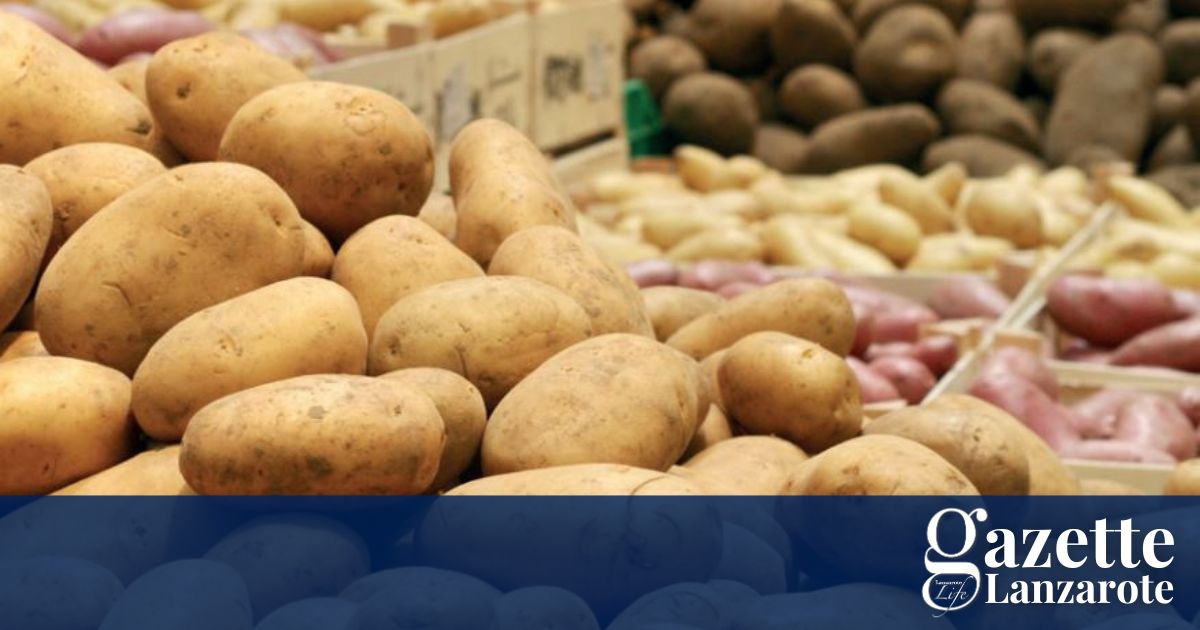The Canaries were among the first places in the Old World to grow potatoes, which arrived on the islands from the Americas 500 years ago. They are every bit as popular today and are evidence of a close and long-standing link between these islands and the UK.
Last year’s potato shortage, caused by an outbreak of pests in a Kent farm, is now over, but it revealed exactly how much the Canaries rely on UK spuds. Local farmers have imported seed potatoes from the UK for decades, and varieties such as the King Edward and Arran Banner even have their own local versions (Quinegua and Arambana).
In the days when the Canaries were the only source of ripe winter tomatoes in Europe, boats would often head to the UK with cargos of tomatoes and return laden with potatoes.
In Spain, potatoes are usually boiled, fried, or roasted (it is rare to find jacket potatoes). Size and age are important. Canarian wrinkled potatoes are smaller, and often younger than the other varieties on offer. Early maincrop potatoes are valued for general use, and this means most potatoes will have a reasonably high level of dry matter, meaning that they are floury rather than waxy.
These are the labels and varieties of potatoes we saw on a recent shopping trip on Lanzarote.
Para Freír (For Frying) – Diva strain, ideal for chips and roast potatoes with a fluffy, floury texture.
Para Cocer (For Boiling) – Kingsman strain. A decent all-round potato with white flesh.
Para Arrugar (For Wrinkling) – Smaller, newish potatoes. We spotted the Maris Peer strain and the famous King Edward, a long-standing favourite on the Canaries. Both offer great flavour and firm white flesh.
A Granel (Loose) – Many varieties are sold loose, generally all-purpose varieties. The Spunta variety, often imported from Cyprus, is a popular choice.
Canarian potatoes: You’re more likely to find fresh local potatoes in smaller grocers or markets. These can be more expensive than imported spuds, reflecting the size of the small farms that produce them. They are worth it, though. If you haven’t tasted the small, dark-coloured papas bonitas, then you haven’t really tasted a potato.
Wrinkle your potatoes!
The papas arrugadas (wrinkly potatoes) served with many Canarian meals are a favourite with many diners and couldn’t be easier to make once you know how.
The secret is to buy the right spuds – anything in a bag marked para arrugar will do.
Place in a saucepan covered with water and add plenty of coarse local sea salt – at least 75g for each 500 g of potatoes (sea water is not usually used because it’s a hassle and doesn’t meet restaurant hygiene regulations).
Boil for 15 minutes, until potatoes are cooked through (test with a fork).
Now drain the pan, leave the potatoes in and place over a low heat. Cover the pan with a lid, hold it firmly with a tea towel and shake it to make the potatoes “jump”. Check every couple of minutes until the potatoes are wrinkled and covered in a fine layer of dried salt.











Leave a Reply
Want to join the discussion?Feel free to contribute!